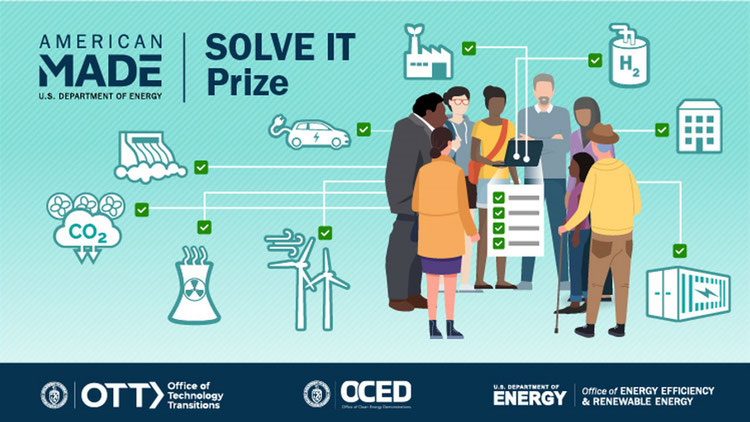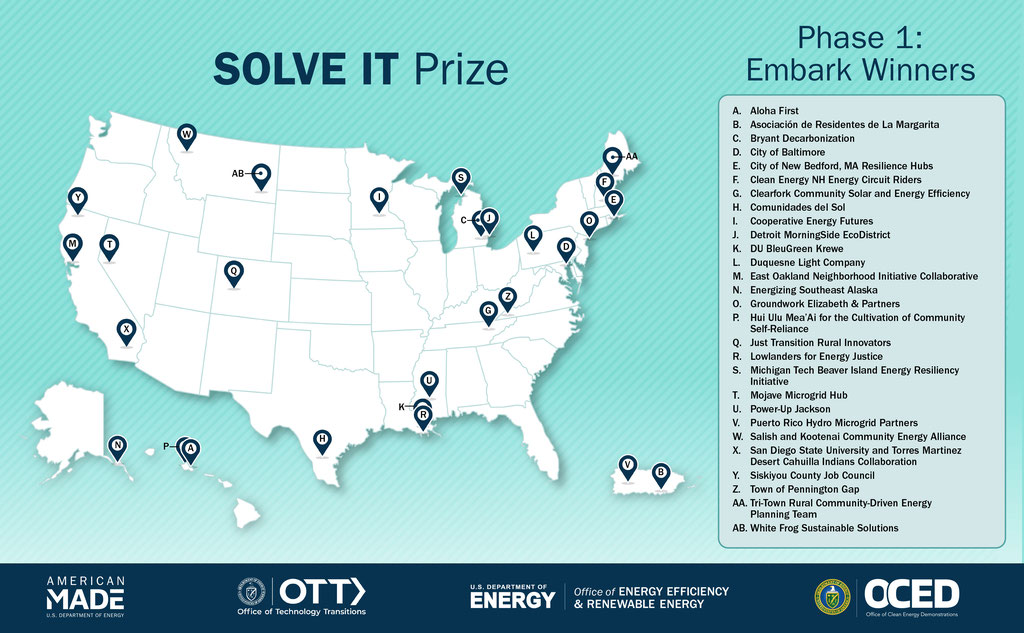SOLVE IT Phase 2: Engage Winners Announced!
Modified March 2025
Winners have been announced from Phase 2: Engage of the SOLVE IT Prize! The 10 winners received $150,000 each for collaborating with community stakeholders to identify energy projects that can address community priorities.

Congratulations to the 10 winning teams from SOLVE IT Phase 2!
- Clearfork Valley Solar and Energy Efficiency (Clairfield, TN) – This team’s Woodland Community Land Trust decided on a solar project that will produce 1 MW of energy, create local jobs, and lower bills for residents.
- Cooperative Energy Futures (Minneapolis, MN) - This team plans to pilot a district geothermal system, centered on an anchor building and connected to residences and buildings in the surrounding area.
- Detroit MorningSide EcoDistrict (Detroit, MI) – This team’s Feed Your Neighborhood- Detroit Disaster Recovery Group plans to retrofit to the Grass Roots Organizing Work (GROW) House community hub with focus on solar panel installation and battery storage.
- Duquesne Light Company – Project GREEN (Sharpsburg, PA) - This team plans to increase energy resilience for an urban greenhouse and grocery store with a solar system coupled with a waste-to-energy system.
- Groundwork Elizabeth (Elizabeth, NJ) - Groundwork Elizabeth seeks incorporate solar and storage with geothermal to transform a community center into an energy-efficient Community Resilience Hub in Elizabeth, NJ.
- Hui Ulu Mea ‘Ai for the Cultivation of Community Self-Reliance (Waiāhole, HI) - This team plans to develop a micro-hydropower system in Waiāhole Valley on the island of Oʻahu, Hawaiʻi to enable resilience in this rural community.
- Puerto Rico Hydro Microgrid Partners (Utuado Municipio, PR) - This team plans to innovatively improve community resiliency with small hydroelectric powered microgrids for low-resourced, rural communities in Puerto Rico.
- Salish Kootenai Energy Alliance (Pablo, MT) - This team’s project is a collaboration of tribal government, business, and non-profit leaders working to meet energy needs of the Flathead Indian Reservation.
- SDSU & Torres Martinez Collaborative (Thermal, CA) - This team’s collaboration will facilitate the energy sovereignty of the Torres Martinez Desert Cahuilla Indians with solar-powered microgrids.
- Town of Pennington Gap (Pennington Gap, VA) - This team’s project plans to develop solar with EV charging to address key community priorities, reduce costs, enhance public safety, and boost local economic resilience.
Read the full announcement and meet the teams on energy.gov.




